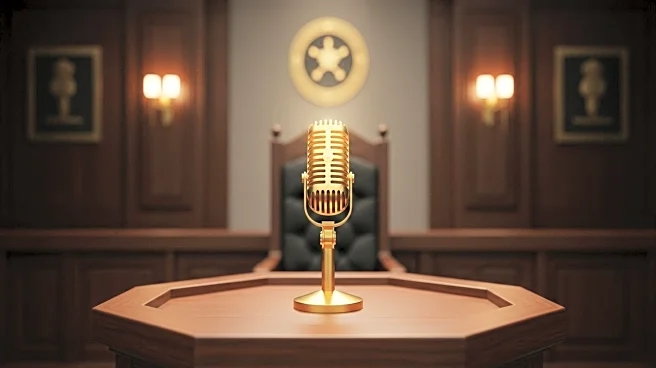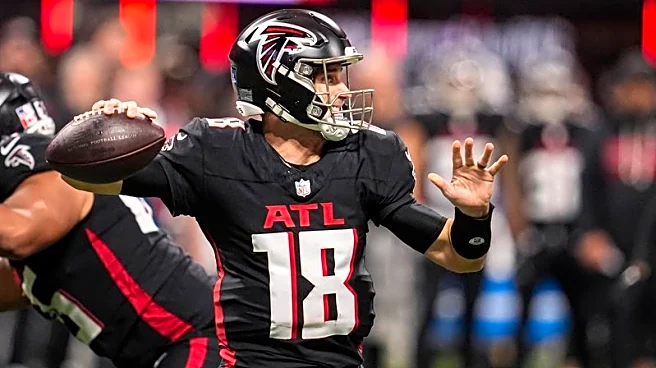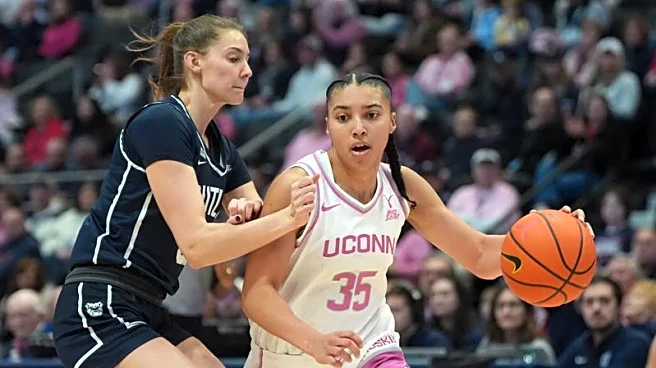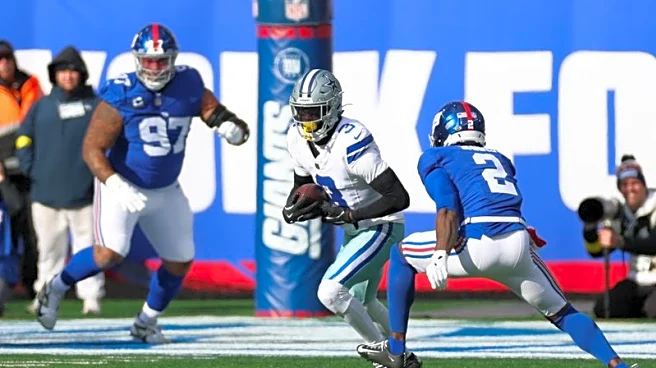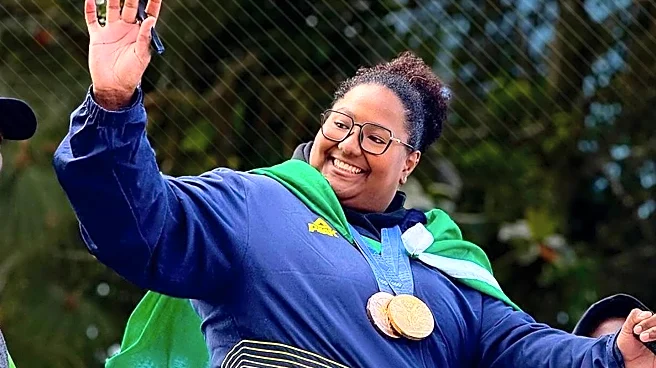What's Happening?
Cardi B, the renowned rapper, is currently involved in a civil trial stemming from a 2018 incident where she allegedly assaulted security guard Emani Ellis at a Beverly Hills obstetrician's office. Ellis claims that Cardi B, whose real name is Belcalis Marlenis Almánzar, physically attacked her after an altercation, leaving a scar on her face. The lawsuit, filed in 2020, accuses Cardi B of assault, battery, and intentional infliction of emotional distress, among other charges. The trial, which began on August 26 in Alhambra, California, has captured public attention due to Cardi B's expressive courtroom demeanor and witty responses during her testimony. Clips of her testimony have gone viral, showcasing her emotive facial expressions and humorous exchanges with the plaintiff's lawyer.
Why It's Important?
The trial is significant as it highlights the intersection of celebrity culture and legal proceedings. Cardi B's viral courtroom moments have sparked widespread interest, reflecting the public's fascination with celebrity behavior in serious contexts. The case also underscores the potential legal consequences celebrities face, impacting their public image and career. A $24 million lawsuit poses substantial financial implications for Cardi B, potentially affecting her business ventures and personal finances. The trial's outcome could influence public perception of Cardi B and set a precedent for similar cases involving high-profile figures.
What's Next?
Closing arguments in the trial are scheduled to begin on September 2. The court's decision will be closely watched, with potential ramifications for both Cardi B and Emani Ellis. Depending on the verdict, Cardi B may face significant financial penalties or reputational damage. The trial's conclusion could also prompt discussions on celebrity accountability and legal standards in civil cases. Fans and legal experts alike are likely to continue following the case, anticipating its impact on Cardi B's career and public persona.
Beyond the Headlines
The trial raises broader questions about the influence of social media on legal proceedings. Cardi B's viral moments illustrate how public perception can be shaped by online platforms, potentially affecting the trial's dynamics. The case also highlights the challenges celebrities face in maintaining privacy and managing public scrutiny. As Cardi B's courtroom behavior becomes memeified, it reflects the cultural phenomenon of turning serious events into entertainment, prompting discussions on the ethical implications of such practices.
